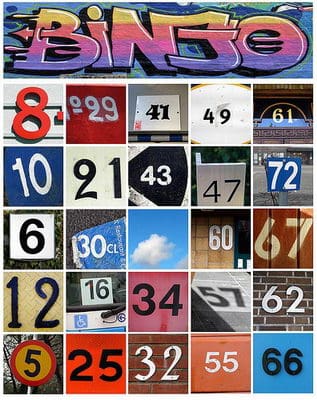Bingo is a game of chance. In that regard, it is wonderfully simple. Numbers are drawn blind and matched against a player’s card, and the player(s) whose cards tally with the numbers wins. This simple formula dates back hundreds of years. The game was commercialised to the point where it became a 20th-century phenomenon with dedicated ‘bingo halls’ springing up around the western world. And it continues as an immensely popular 21st-century pass-time, albeit with the internet overtaking, and in some cases replacing, the bingo halls enjoyed by previous generations. The key development that allowed this translation was to consistently and reliably deliver the randomness on which the game depends. It turns out that producing randomness is not as easy as you might imagine.
The question of chance
In the pre-digital era, the dual reliance on the chance that was integral to the game – the arbitrary configuration and selection of a player’s cards and the random sequence in which numbers were selected – made it reassuringly unpredictable for all concerned.
The draw numbers were typically pulled ‘blind’ from selecting numbered balls, tokens, or some other physical equivalent. The printed cards were marked by players by hand as their ‘winning’ numbers appeared. Those fundamentals remained unaltered since the invention of the game in 16th century Italy.
But in 2015, the market for online bingo is replete with countless competitors vying to deliver that same fundamental game of chance. The differences between such major providers at sites are largely cosmetic. Indeed, many of these providers are public-facing, shop-window brands that ultimately depend on the same generic software. The bingo market is, in large part, a form of franchise industry whereby different franchisees provide intermediary marketing and branding operations whilst delivering fundamentally the same base-line service.
At the core of the online bingo industry – worth above £380 million in the UK alone – is the software that generates random numbers. It is not as easy as you might imagine achieving randomness.
Perhaps not surprisingly, the precise algorithmic means by which the industry’s leading provider, Microgaming, operates is a closely guarded secret. In an industry that routinely handles other people’s money, trusting in the integrity of all aspects of the system is an absolute priority. We are not going to tell you precisely how numbers at 32Red or anywhere else are actually generated. What we can do, however, is set out the basic means by which random number generating algorithms are established.
The absence of pattern
As in all business, the scientific determination of what something is – in this case, randomness – is less of a priority than the social evaluation. In other words, from a strictly mathematical viewpoint, it will always be possible to predict the outcome of a specific equation providing one knows in advance what the factors within that equation will be. Therefore, the feat that the random number generator must achieve is to produce numbers in a sufficiently unpredictable fashion that the underlying formula that leads to their generation cannot be accessed.
The difficulty for random number generators is that they have to start somewhere. There have to be some means by which the initial ‘seed’ digits are arrived at. In this sense, the randomness of the whole equation may be undermined.
A frequently used seed initial value is the time (rendered in milliseconds) between the point at which the calculation occurs and a specific point in the past, e.g., midnight on January 1, 1970. Since a different starting number will seed each calculation, all derived calculations will be different.
Use of such a variable seed does not mean that the algorithm is automatically secure, since access to the overall formula may still allow someone to anticipate the figure that will be calculated at a specific point in the future. It is, however, a good start.
At the same time, a further complication arises for the game of bingo in that within a game, the repetition of numbers is not permitted. Adding to the complexity, specific patterns of numbers or number relationships cannot be repeated either. There is, thus, a limit to the extent of randomness that actually applies within successive gaming calculations since – in theory at least – randomness must allow for repetition as a potential outcome.
Checking the figures
Given this mathematical complexity, it is reassuring to note that the bingo industry is highly regulated, and all licensed providers are routinely scrutinized for the fairness of their operation. The benchmarking organization in the UK is e-COGRA (e-Commerce and Online Gaming Regulation and Assurance). Their regular checks ensure that gamers can enjoy the same confidence in the game that players have always enjoyed. The eCOGRA certificate – as it appears on 32red.com – guarantees that the games hosted there are fair, that the operator has been found to behave honestly and responsibly at all times and that all monetary deposits are safe. For most players, the fact that someone else has taken to check the maths is deeply reassuring – even though they might at times appear to be happy to leave it to chance. As we have seen, the chance is not that straightforward.


